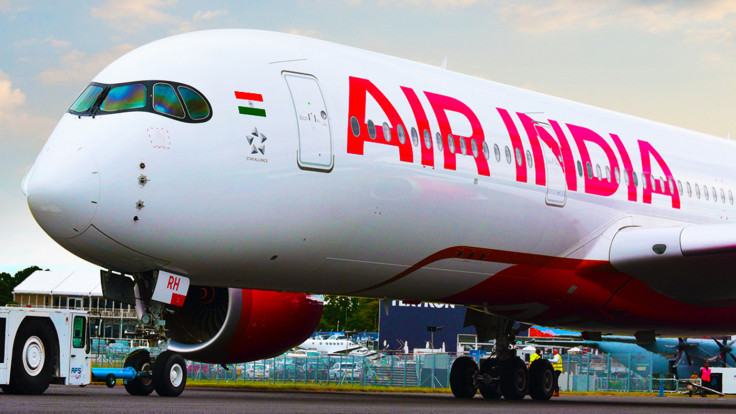Supreme Court Rules Air India Pilot 'Not to Blame' for Gatwick-Bound Disaster That Claimed 260 Lives
Supreme Court rules pilot not at fault for Gatwick-bound crash that killed 260

India's Supreme Court has ruled that the pilot of an Air India flight bound for London Gatwick was not responsible for the devastating crash that killed 260 people, including 52 British nationals. The judgment brings relief to the pilot's family after months of speculation surrounding the cause of the tragedy.
The Boeing 787 Dreamliner, operating as Flight AI 128, went down shortly after take-off from Ahmedabad Airport on 12 June, crashing into a nearby medical college.
Of the hundreds on board, only one person survived.
Court Rules Pilot 'Not To Blame' For Deadly Gatwick-Bound Crash
Justice Surya Kant, delivering the ruling, said that 'nobody can blame' Captain Sumeet Sabharwal, 56, for the fatal crash. The court stated that the available evidence did not support claims that the pilot was at fault.
'It's extremely unfortunate, this crash, but you should not carry this burden that your son is being blamed. Nobody can blame him for anything,' Justice Kant told Sabharwal's elderly father, Pushkaraj, during the hearing.
The ruling follows months of debate within India's aviation sector, where officials and the public alike had sought clarity on who, or what, was responsible for the catastrophic incident.
This debate was fueled in part by a preliminary accident report that pointed to a possible system error in the cockpit.
Investigation Points To Possible Fuel System Error
A preliminary report by India's Aircraft Accident Investigation Bureau (AAIB), released in July, found that the cockpit fuel control switches had been moved to the 'cut off' position just before the crash.
Audio recovered from the cockpit captured one pilot asking the other why the switches had been cut off, a question met with denial.
Although US investigators initially believed Captain Sabharwal may have accidentally activated the switches, India's top court ruled that no evidence substantiated this theory.
The AAIB's findings, it said, did not assign blame to any individual.
The government has since insisted that its investigation was 'very clean' and 'very thorough', rejecting allegations that crucial data had been mishandled.
Family's Plea For Justice
Captain Sabharwal's father, Pushkaraj, has been a vocal advocate for his late son's exoneration. He previously accused investigators of unfairly suggesting pilot error and called for an independent probe headed by a retired Supreme Court judge.
A new plea from the family will be heard on 10 November, with hopes of establishing an impartial review panel to assess the crash investigation in full.
Friends and colleagues have described the veteran pilot, who logged more than 15,000 hours of flight experience, as a 'thorough gentleman' dedicated to both his profession and his family. A neighbour recalled seeing the pilot walking hand in hand with his elderly father whenever he was off duty.
UK Families Among The Victims
Among the 260 victims were 52 British nationals travelling to the UK. Many of the passengers were reportedly visiting relatives in Gujarat and were returning to London when the crash occurred.
British officials have expressed support for the families of those lost, though no official UK inquiry has been launched. The Civil Aviation Authority (CAA) has said it continues to liaise with Indian authorities, monitoring the ongoing investigation.
In a post on X (formerly Twitter), the Airline Pilots' Association of India(ALPA India) shared a statement praising the Supreme Court's decision, calling it a victory for professionalism and integrity in aviation. The association wrote:
'Today, the Supreme Court of India reaffirmed what we have always known: truth, skill, and integrity cannot be clouded by speculation. No blame was found for the pilot of Air India Flight AI171, vindicating Capt. Sumeet Sabharwal and his crew, [honouring] every pilot who stands as the last line of safety between sky and earth'.
In solidarity: for Pilots, by Pilots. Today we celebrate the integrity of our profession and stand united for transparency.
— ALPA INDIA (@In_Alpa) November 7, 2025
Here's to the truth, and to the unwavering spirit of aviators. pic.twitter.com/CymwsV3HYf
The association's message has since been widely shared by pilots and aviation professionals, who say the ruling restores dignity to those who operate under immense pressure in the skies.
Ongoing Questions Over Air Safety
While the Supreme Court's decision clears the pilot of blame, the ruling raises further questions about mechanical integrity and cockpit procedures aboard Air India's fleet. Aviation analysts say the findings underscore the need for improved safeguards against inadvertent system errors.
For families of the victims, both in India and the UK, the ruling offers a measure of clarity after months of uncertainty. While it clears Captain Sabharwal of blame, it also underscores the need for continued transparency and accountability in major air crash investigations.
© Copyright IBTimes 2025. All rights reserved.




















